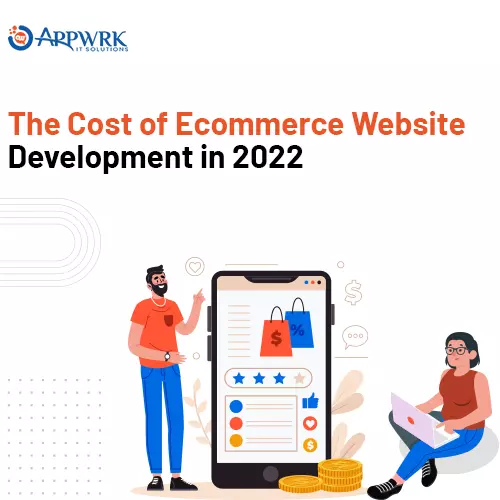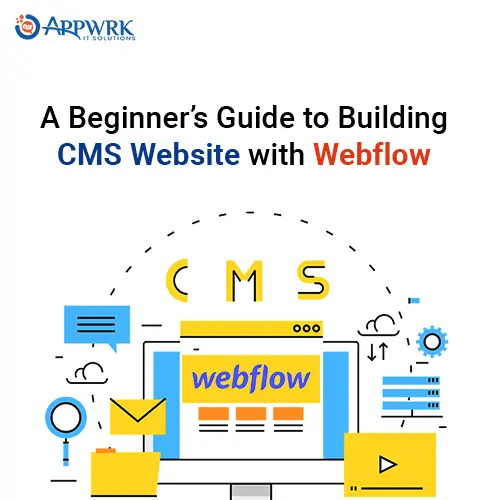Magento vs Shopify – A Complete Comparison Guide
Magento vs Shopify, which one to choose for the new online store? You are not alone whoever is struggling with this question. It is not easy to select the right platform to kick off your new business idea, with lots of great eCommerce and website builder options available these days. Both Magento and Shopify are best for mid to large-size businesses. Shopify is an easy-to-use platform for building online stores, While Magento, an open-source system like WordPress, is totally free to install on your device.
Fight between them is expected as both are leading e-commerce platforms. You might be considering your option if you are planning to create an online store or want to migrate the current one to another platform in the future. Don’t worry; we will simplify your problem through this article, which covers a detailed comparison between these two platforms.
Check out this table consisting of ratings given by people who have worked on either Shopify or Magento. It will help you to get an overview of both platforms.
Magento vs Shopify
Look at the global reach of both platforms.
Countries with the total number of Shopify and Magento stores
The global reach of both these platforms proves that they are ruling the eCommerce industry, so the comparison is not going to be easy! Let’s first step back into the history of Shopify and Magento before diving deeper into comparing both of them.
Table of contents
- Detailed Comparison of Magento vs Shopify
- Pros and Cons of Magento and Shopify
- Conclusion
Shopify- Shopify was introduced in 2006 by Tobias Lutke and Scott Lake. Initially, they opened an online store called snow devil to begin selling snowboarding equipment. But they are dissatisfied with the existing e-commerce platforms. Hence Lutke, a software programmer, designed his own e-commerce and launched ‘snow devil’ after two months of development.
Later on, after two years, the platform hosting snow devil was launched as ‘Shopify’, finally fulfilling the need for an online platform once sought by their founders. Soon in June 2009, Shopify launched an API(application programming interface), which allows developers to build applications for Shopify online store and then sell them on its app store. Although it did not start as an e-commerce giant, today, Shopify completely spread its legs on the internet due to its ease of use and extreme functionality. Have a look at the below stats which prove Shopify websites winning the heart of the e-commerce industry.
- Shopify’s total revenue worldwide from 2015 to 2020(in million US dollars), by segment.
- Look at the online sales growth comparison of businesses built on the global e-commerce market and on Shopify in 2019.
- Shopify takes 23% e-commerce market share in the USA in 2021
- In 2019 46% of E-merchants migrated their websites to the Shopify platform.
- In the first quarter of 2021, Shopify’s total revenue was $988.6million
Now move on to Magento and find out how and when it comes into action!
Build Amazing E-commerce Websites. Best-in-class Services. Ready to Work at your Timezone.
Magento – Is an open-source eCommerce platform that imparts merchants total flexibility on shopping carts and complete control over functionalities. Magento also comprises a great list of tools and features and provides you with the freedom to get your online shop’s desired look and feel. It came into existence on 31 August 2007 by Roy Rubin and Yoav Kutner.
The company owning Magento-’varien’ formerly worked with OsCommerce. Later on, developers felt that OsCommerce couldn’t carry all the functionalities they desired. So they separated from it and created an entirely new system- ‘Magento’.
In the first year, only this platform won the “Best of Open Source Software Award” and “SourceForge Community Choice Award ” several times. Magento 2.0 was released in November 2015 with improved features and functionality. Some of the features added are- Improved page caching, a better-structured code base, enhanced file structure with easier customization, etc. It has become compatible with Shopify. Seriously without any doubt, we can say that the Magento vs Shopify fight is quite challenging.
Like Shopify, the Magento website also stands ahead of the competition; the stats given below will prove it.
- Magento has 2.32% of the market share of leading eCommerce software platforms and technologies globally.
- Magento occupies a market share of 1.1% of all sites which use a known content management system.
- Look at the Magento 2 usage graph.
The origin of both Shopify and Magento is out of the requirement for better eCommerce platforms, and both succeed in justifying it. If you are planning to start your new business, you must be taking it to online mode; as we know very well in this digitized world, E-commerce is the new way of doing business with guaranteed success. So choosing the best platform which ensures the desired result should be your first and foremost step. To simplify your journey, we have given here a detailed comparison of the two topmost platforms. We have tried to cover almost every aspect of comparison.
Save Up to 50% Off!
Detailed Comparison of Magento vs Shopify

Mode of comparison
- Ease Of Use
- Pricing Comparison
- Features Comparison
- Performance Comparison
- Integration Comparison
- Design & Integration Comparison
- Modules & Plugins Comparison
- Comparison of payment processor and transaction fees
- SEO comparison
- Help & Support Comparison
1. Ease of use
The easier to use the platform is, the more quickly you will set up your online store on it. Both Shopify and Magento come with a well-designed user interface, so things are pretty easy for anyone to get up and run their store. If we have to figure out Magento vs Shopify, which one is easier to use?. Then we can say that Shopify is compatible easier than Magento. The reason is Shopify is a website builder with a one-stop-shop and drag and drop option. In other words, we can say that by simply moving elements around the page, you can easily customise your site in your desired way. In contrast, the learning curve of Magento is steep compared to Shopify. Hence to design or customise your site, you need to learn the coding or hire web development services.
Conclusion– If you are a newbie with no prior knowledge of coding, Shopify is good for you as it is easier to operate than Magento.
2. Pricing comparison
The primary difference between the two platforms is one(Shopify) is hosted, and the other (Magento) is a self-hosted platform. In hosted one, all your hosting costs are included in your monthly or yearly subscription, no need to pay extra. While Magento is free to install, you must pay for a domain, web hosting, security, and extension. You need to register for your domain at Domain.com. It will cost you around $10 to $15 per year. Both Magento and Shopify offer different pricing models. Shopify has three fixed pricing models, which seems cheaper in the first instance, but you have to pay extra for themes and apps. Whereas as we know, Magento is an open-source platform, so the cost here entirely depends on your requirements. Look at the below table for better clarity of pricing comparison.
Pricing Comparison- Magento VS Shopify
Also, check out the themes and extension costs for both platforms
3. Features comparison
- Basic Features
Both Shopify and Magento offer a wide range of features and functionality that are enough to manage your online store properly. However, if we have to compare, we can say that Magento has more built-in features, and you only have to pay for some of the extra features. On the other hand, in Shopify, you have to get an app for extended functionality. Have a look at the quick comparison of some of the essential features of e-commerce.
Features Comparison
- Marketing Features
With the help of marketing tools, you can easily convert more leads into customers. Shopify comes with excellent marketing tools like constant contact, Seguno, Klaviyo, and many others. You can even sell and advertise directly on Social Media Platforms- Facebook and Instagram.
Magento depends on its marketplace for most of the marketing tools. For example, you have to install Remarkety to run email campaigns.
4. Performance comparison
Customers/users like fast loading websites; there is no second thought to it. Website performance has a significant impact on conversion rate. More readily a web page loads, more faster users perform the desired action.
- Shopify vs Magento Performance
Shopify generally comes with reliable and stable performance. The reason is as it is a hosted solution, so the company guarantees Shopify website speed. While in the case of Magento, the website’s speed directly depends on the hosting service you selected. So you don’t need to worry about website performance if you go for good hosting with proper website optimization.
5. Integration comparison
If you’re dropshipping or have a store outside your website(Amazon), then syncing with your suppliers is crucial. Let’s see how integration is achieved on both platforms.
- Shopify Integration
Shopify is a very user-friendly platform, so apps here can be easily integrated to expand your store. It has built-in integration for syncing your amazon and eBay store. Even for dropshippers, it’s free and easy to sync and connect with suppliers. But for a few things, you have to pay, like Alibaba and Google customer review.
Check out the complete list of Shopify Integration.
Included in Plan-I
Free add on -F
Paid App Needed- P
- Magento Integration

In terms of integration, Magento falls behind Shopify. Most of the integration needs manual installation, so you need tech assistance for that. Here Facebook and Google integration is totally free, but for Amazon and eBay, you have to pay extra.
Check out the complete list here of Magento installation and integration.
Free Add on- F
Paid app needed- P
Included in the plan-I
Custom development needed- C
6. Design & Customization comparisons
The outlook or design of your website is the first thing that attracts your customer. Hence the look and feel of your website play a vital role in your store’s success. Both Shopify and Magento offer numerous beautiful paid and free themes.
- Shopify
It offers a total of 83 themes, out of which 9 are free and 74 paid premium themes. This will cost you around $ 280 to $350 (cheaper than average themes on Magento). All Shopify websites are mobile responsive, so whatever theme you choose will look perfect on smartphones as well. After choosing your theme, you can do the desired customization by moving and resizing elements, adding new pages, and changing the color palette. You don’t need any prior knowledge of coding for that.
- Magento
It offers both custom themes that require professional developers and ready-made themes without any coding or customization. The custom themes can cost around $70 to $499, while the average cost of ready-made themes is $ 100. Custom themes are best for large businesses with a greater budget and those who want to customize their Magento website in their own way.
7. Modules & Plugins comparison
Every eCommerce platform provides you with enough functionality and features to start your online store. But by adding some third-party extensions, you can enhance your website functionality and performance. Shopify offers 4000+ plugins in the App store, out of which1500 are free.
Magento offers plugins in terms of both quantity and quality. The list of extensions here covers all aspects- marketing, content & customization, payment & security, customer support, accounting, etc.
8. Comparison of payment processor and transaction fees
Before choosing any platform, make sure that they have numerous ways of payment, as your business can only be successful if payment is completed. Things are easier in both Shopify and Magento as you can connect your store with a payment processor in just a few clicks. As we are looking for a fair comparison of Magento vs Shopify, let’s discuss them separately.
- Shopify
Shopify provides more than 100 payment gateway. It also has its own payment gateway called Shopify payment processor, which imposes zero transaction fees. The Shopify payment is very complex and time-consuming. Thus to simplify the transaction you can integrate “Stripe” software into your payment gateways. By integrating Stripe with Shopify, all the transactions become quicker, safer, and scalable.
Check out the below table to find out how much extra you have to pay if you are not using Shopify payments
- Magento
Magento supports over 150 payment gateways, but most of them are for large enterprises. As we know it’s not a hosted platform, so to access some of the payments, you will need the help of website developers. To integrate other payment processors like Square, and Stripe, just install them from the marketplace. Along with it, you can access various other payment options of other countries to sell your products over there. Talking about the top 10 payment gateways in 2021, then here is a list for you;
- Stripe
- Paypal
- Amazon Pay
- Braintree
- Authorize.net
- 2Checkout
- Square
- WorldPay
- CartaSi
- SagePay
Conclusion- Shopify might be best in implementing your payment processors quickly and easily, but with Magento, you will get a few more options for international selling.
9. SEO Comparison
SEO stands for Search Engine Optimization. Just designing your store’s website won’t achieve your target of gaining more customers. To increase organic traffic to your website, your online store should rank on the first page of the search engine. Hence designing your website by prioritizing SEO will help you generate more revenue. There are various SEO practices to boost your website ranking, such as Keyword optimization, page speed optimization, internal linking, external linking, adding alt text to images, etc.
You can achieve SEO of your online store on both platforms. You can easily change the page title and description, alt text to images, etc., to define your store profoundly in the search engine and tell the search engines what they are all about.
In Shopify, you will get various SEO apps (paid ones), which will help you to keep your online store’s SEO intact. For example, one of Shopify’s SEO apps-” SEO BOOSTER”, helps find the SEO issue. Check out the other SEO apps, those you can easily install on your Shopify website in the below image.
Magento websites can also be easily SEO-optimised. According to a Magento review from Capterra–
“Overall, Magento is a very good platform to start immediately the eCommerce store, and the one thing I found super convenient for me is SEO friendliness.” However, there is some stuff with Magento that you can’t handle alone. You will need the help of web development services to get it resolved. For example, Magento adds .html at the end of the URL, which adds extra length to the URL and makes it less user-friendly. But you can take it out in the Admin panel, then /index.php/ string will be added to the URL.
So, your page URL will be: https//:yourstory.com/index.php/your-product/ To edit this URL and make it more user-friendly, you will need the help of developers.
Conclusion– In Shopify, URLs are quite rigid, you can’t change them, but in Magento, you can get it done with the help of professionals. But one point is still with Shopify as it generates a sitemap automatically, while in Magento, you have to create a sitemap directory to create a sitemap.xml.
10. Help and Support Comparison
The help & support option of your eCommerce platform must be quick and comprehensive. Because the sooner you fix the issues of your online store, the sooner you get back and start gaining new customers. Let’s discuss Magento vs Shopify help & support.
- Shopify Help & Support
It offers dedicated help and support. Here a professional team is available 24/7 to solve customers’ problems via chats, email, and phone calls. Other than that, Shopify users can also get help through community forums, documentation, a help center, and various video tutorials.
- Magento Help & Support
Magento, on the other hand, being a community-based platform, comes with excellent building guides that will help you through the entire process of the online store building. Here you will not get direct dedicated support like email, phone calls, or chat unless you opt for the Magneto Commerce Cloud plan for B2B. But you will definitely get access to siteground’s support team help.

Pros and Cons of Magento and Shopify
Magneto and Shopify both provide tons of benefits, but there are certain areas where they fall short for your eCommerce. Let’s have a look at each of their pros and cons.
Shopify website Pros
- Great app store for extending your website functionality.
- Extensive checkout and payment options.
- A large community of dedicated fans.
- Great customer support
- Multichannel selling options (Facebook, Instagram, Amazon, and eBay)
- Easy to operate
- More than 70 mobile responsive themes
Shopify website Cons
- To get more functionality, you have to pay for apps
- It is quite complicated to integrate an app into the store
- Unless you use Shopify payment, fees applied for every transaction
- Less option for free themes
Magento Website Pros
- Excellent community with great support for users
- A very flexible platform as lots of customization is possible
- Ideal for medium to large businesses with their own web development services
- A wide range of free themes to choose from
- Excellent phone support
- It is open-source and free to use
Magento website Cons
- Not suitable for beginners, as coding knowledge is required
- It takes lots of time to set up a store
- For setting up your store, lots of costs incurred
Conclusion
In the realm of e-commerce platforms, choosing between Magento and Shopify hinges on your business’s unique requirements. Shopify’s simplicity and comprehensive ecosystem make it a go-to for newcomers and small ventures seeking quick setup and ease of use. Conversely, Magento’s robust customization options and scalability cater to established businesses with specific development needs and a focus on extensive customization. Regardless of your choice, APPWRK is here to support your journey with expert guidance and solutions tailored to your e-commerce success. Ready to elevate your online store? Contact us today and let’s turn your vision into reality!
About The Author





















 Free Quote
Free Quote
















































